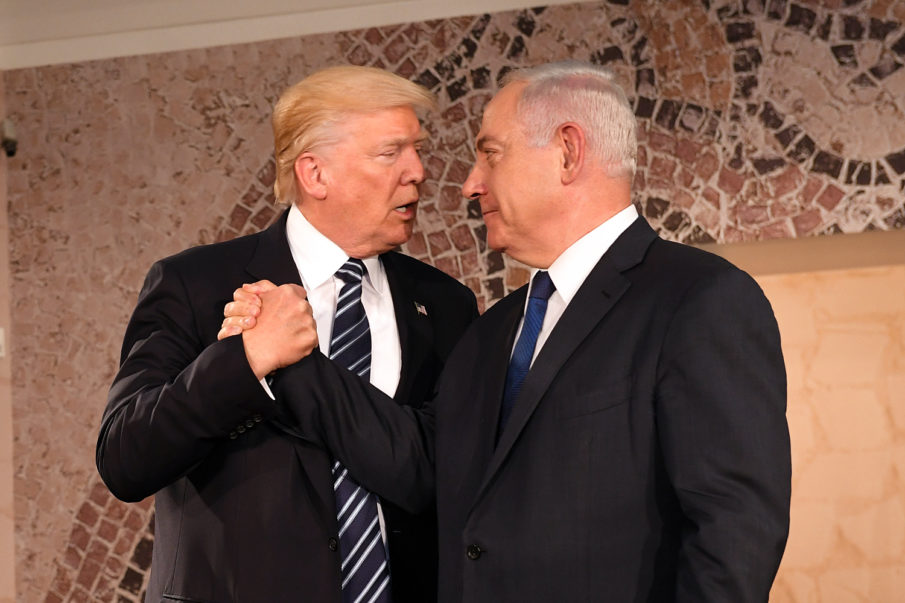Prime Minister of Israel Benjamin Netanyahu criticized the “Trump-Putin” cease-fire agreement in Syria, saying the arrangement will only empower Iran.
Speaking from France after meeting with French President Emmanuel Macron, Netanyahu told reporters that Israel was staunchly opposed to the negotiated cease-fire deal between Russia and the U.S.
According to Haaretz, Israeli opposition to the deal had been kept quiet from media outlets, but after the deal was finalized with little consideration for Israeli requests, Netanyahu went public with his dissent.
The cease-fire in Syria, which has so far been holding, has been touted as one of President Trump’s first major foreign policy successes. However, cease-fires in Syria have been tried before, with little to no success. Time will tell if leveraging the improved relationship with Putin will pay dividends in enforcing the terms of the cease-fire agreement.
But considering Netanyahu’s immediate and warm embrace of Trump’s presidency earlier this year, which he referred to as “the reassertion of American leadership in the Middle East,” breaking with the American president so early on one of his only foreign policy accomplishments to date speaks to his concern over the growing influence of the country most benefiting from American foreign policy decisions and objectives across the Middle East: Iran.
Israel’s primary opposition of a cease-fire in Syria right now stems from their belief that Iran is seeking to establish a permanent and major military presence in Syria, reportedly to include air and naval bases in the country. With Iranian influence continuing to grow just north of Israel in southern Lebanon, Israel is undoubtedly feeling continuously threatened with an Iranian encroachment on their territory. A stabilized situation in Syria, with Assad remaining in power, will only benefit the Iranian regime.
Israel’s reported objections to the cease-fire deal included that the Israeli and Jordanian border areas with Syria must be free of Iranian, Hezbollah, and other Shi’ite militia presence, must not facilitate the growing Iranian military presence in Syria, and that Russian troops should not be functioning as peacekeepers near its borders, according to Haaretz.
Featured Image courtesy of U.S. Embassy Tel Aviv
Already have an account? Sign In
Two ways to continue to read this article.
Subscribe
$1.99
every 4 weeks
- Unlimited access to all articles
- Support independent journalism
- Ad-free reading experience
Subscribe Now
Recurring Monthly. Cancel Anytime.











COMMENTS